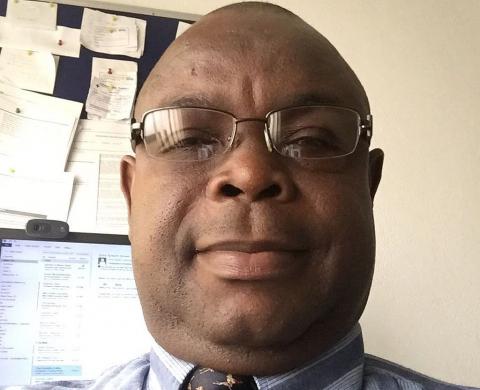By Tanu Jalloh
Country economist at the World Bank office in Sierra Leone says the Ebola epidemic in 2014/2015 did not directly affect the iron ore sector in the country, citing drop in prices of commodities as a major reason.
Yusuf Bob Foday recently told journalists at their Howe Street offices in Freetown that before the Ebola outbreak in 2014 iron ore sector players, African Minerals and London Mining, could not produce much and the price per tonne of iron ore had dropped from US$103 in 2012 to below US$40 in 2014.
“We [Sierra Leone] have gone back to the pre-Ebola level without iron ore. In fact diversification of the economy is yet to take place. Apart from management issues, Timis Corporation, which took over London Mining, is still not operational and Shandong has only met 35% of the 12 million metric tonnes they had projected to export by February next year,” he said.
Foday added that the mining sector was very volatile and because the country was largely dependent on iron ore in the years immediately preceding the drop in global market prices, Sierra Leone was badly affected.
The bank recently launched its twice yearly analysis of economic trends in the continent, showing that economic growth in Sub-Sahara Africa was expected to fall to further 1.6 % this year after it had slowed down to 3 % in 2015.
The report, titled Africa’s Pulse, and released on September 29 this year, states that countries like Cote d’Ivoire and Senegal in West Africa are top performers with average growth rates of over 6%.
“Our analysis shows that the more resilient growth performers tend to have stronger macroeconomic policy frameworks, better business regulatory environment, more diverse structure of exports, and more effective institutions”, says Albert Zeufack, World Bank chief economist for Africa.
Sierra Leone did not fall under this category because it was heavily reliant on the mining sector and investment in agriculture had not been efficient for the past two decades. It could be one of those countries the report fears are “registering a sharp slippage in economic growth” with risks like eroding fiscal space, upcoming elections, depreciation of the leone and large account deficits. It therefore warns that some buffers must be created through social programmes while adjusting domestic spending.
While presenting the 2016 budget in November last year then finance minister, Dr Kaifala Marah, told parliament that the primary fiscal deficit was projected to widen to 5.5 % of GDP, compared to the initial ceiling of 3.5 %. That financing gap was going to be filled by the US$ 22million from IMF and a budget support of US$ 30million from the World Bank, US$ 25million from AfDB and €25million from the EU.
The effect of a widening financing gap is already badly hurting the government. Unlike in 2015 when the government had US$ 83million in budget support, as at September 2016 no such support was forthcoming from World Bank, AfDB and EU. The delay is adversely affecting government disbursement and already taking a huge toll on general service delivery and in particular the post-Ebola economic recovery process.
The director of budget bureau in the ministry of finance, Mathew Dingie, recently told local media in Freetown that budget support from World Bank, the African Development Bank, the European Commission and the United Kingdom Department for International Development (UK–DFID) had delayed seriously.
“In 2016 the government was only able to disburse money for the first quarter in August, almost at the end of the third quarter. This has affected timely delivery on the part of government institutions,” Dingie lamented.
He added that the slow pace of support from donors had placed a huge stress on the budget which had been largely dependent on domestic revenues in the last one year, consequently causing serious delays in the disbursement of funds to ministries, departments and agencies.
When asked what could be the reason for the delay in support from the World Bank to the extent that it was affecting government’s operations, the World Bank country, Foday, said the conditions that determined timely interventions by the bank might not have been adequately addressed by the country.
“Let’s say out of five prior actions or triggers set as conditions the government could only meet three, the bank may decide to delay until the issues are fully addressed before they can act, especially with budgetary support,” he said.
Copyright (c) Politico 2016









